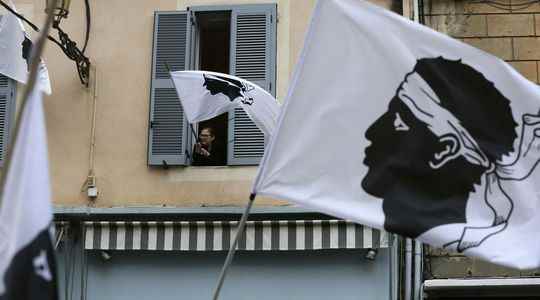This is a recurring debate in France. the status of Corsica, compared to other regions of the territory, is particular. It has been evolving for decades through different laws. He is once again at the center of discussions and positions taken by candidates for the presidential election since riots shook the island of Beauty in reaction to the attack on Yvan Colonna in prison.
On the eve of his trip to Corsica, this Wednesday March 16 and Thursday March 17, the Minister of the Interior Gérald Darmanin did not rule out offering the Corsican separatists what they have been demanding for a long time: “We are ready to go as far as autonomy. Afterwards, the question is to know what this autonomy is. We have to discuss it, “said the tenant of Place Beauvau in an interview at Corse-Morning posted Tuesday, March 15. The debate is therefore open, a few weeks before the first round of the presidential election.
Greater autonomy than other regions
Corsica has a status different from that of the other regions which, since 1991, has given it greater autonomy in certain areas such as education, culture, housing and land, economic development, the environment, transport and even infrastructure management.
On January 1, 2018, the Single Territorial Collectivity of Corsica (CTU) replaced the two Corsican departmental councils and the Territorial Collectivity of Corsica (CTC) by merging them, a first in metropolitan France. This CTU brings together members of the executive council of Corsica, the president of the Assembly of Corsica, the presidents of the agglomeration communities, the mayors of the communes of 30,000 inhabitants or more, a representative of the local authorities and groupings of local authorities mountain regions, eight elected representatives of the presidents of communities of municipalities and eight elected representatives of the mayors of municipalities with less than 30,000 inhabitants. Corsica nevertheless retains two prefectures of departments and the services of the State, but sees its two departments merging.
The territory “is freely administered, under the conditions set by law and by all other non-contradictory legislative provisions relating to departments and regions”, specifies the site. Public life. The Assembly of Corsica includes 63 members elected for six years by universal suffrage, who elect an executive.
Three laws since 1982
Already the subject of three laws, in 1982, 1991 and 2002, the status of Corsica was again on the agenda at the start of Emmanuel Macron’s five-year term, in a constitutional revision project which was to include in the fundamental law the specific status of the Island of Beauty. But the reform did not succeed.
In 1982, Corsica thus became a metropolitan region before the others, the law giving a special status to the Corsica region. It will be supplemented by that of July 30, 1982 relating to skills.
That of May 13, 1991 concerned the territorial collectivity of Corsica, which made this island a territorial collectivity with special status. If the latter is therefore no longer a real region, the law applicable to the regions nevertheless applies. Finally, the law of January 22, 2002 gave Corsica new powers, but did not modify its status.
